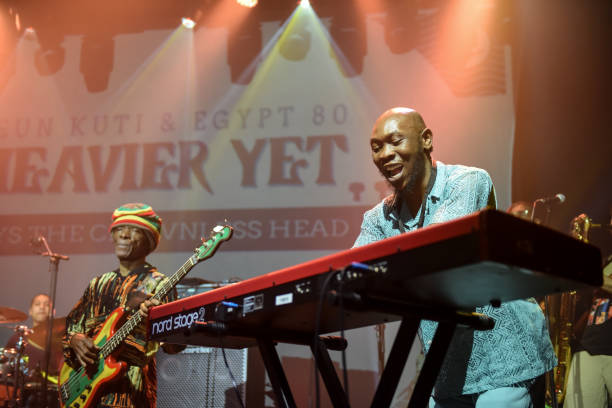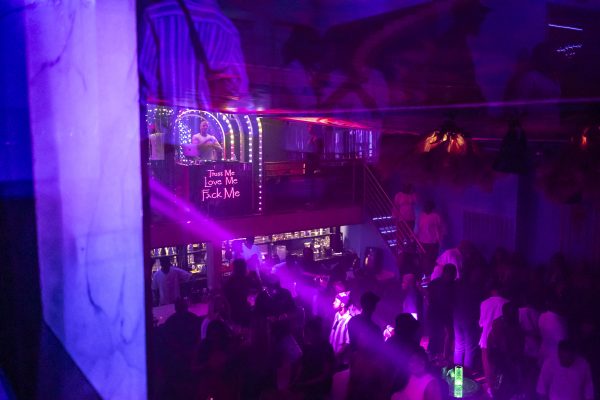In July, news made rounds that media managers of the Osun Osogbo Festival had precluded media houses from broadcasting, publishing, or using any content from the 2024 edition of the annual event without prior permission from the organisers. That was the first time such a caveat was issued. See more facts for Osun-Osogbo festival: celebrating Yoruba culture and spirituality.
[ad]
What followed was a quick and widespread condemnation by sons and daughters of Osun State, to whom the festival is significant. This forced the state government to issue a disclaimer. Such is the importance of the festival to the people of Osun state and the Yoruba land in general. “It’s a sacred festival to the Yoruba race and the traditional rulers of Osogbo,” said Adebisi Obawale, a former Commissioner for Culture and Tourism in the state.
READ ALSO: Which Of These 6 Nigerian Traditional Festivals Do You Know?
Each year, the city of Osogbo in Osun State, Nigeria, comes alive with the vibrant and deeply spiritual festival. The festival attracts thousands of Yorubas, an ancient ethnic group in West Africa that numbers around 40 million, the vast majority living in Nigeria. The festival is always a two-week-long celebration. It holds in August. For this year, it ended on the 9th of August. It is dedicated to Osun, the Yoruba goddess of fertility, love, and beauty. The festival offers a significant cultural and religious relevance. Also, it is a unique insight into the rich traditions and beliefs of the Yoruba people.
[ad]
Historical roots
Osun State has a significant Muslim and Christian population, with a number of Nigeria’s best known preachers hailing from there. Still, the Osun-Osogbo Festival is a major crowd puller every year and has been celebrated for hundreds of years. “Traditional religion has not been killed by modern religion because it is too deeply rooted among the Yoruba people to be destroyed,” said researchers Saskia Cousin and Jean-Luc Martineau in the academic journal Cahiers d’Etudes Africaines.
The origins of the festival date back over 600 years. It commemorates the sacred pact between the first monarch of Osogbo, Oba Gbadewolu Laroye, and the river goddess Osun. According to legend, when the early settlers arrived at the Osun River, they encountered the goddess, who offered them protection and prosperity in exchange for regular veneration. This covenant laid the foundation for the annual festival, which continues to honour this bond.
[ad]
The festival is a vibrant showcase of Yoruba culture, blending traditional music, dance, art, and spirituality. It begins with a cleansing ritual, known as Iwopopo, which purifies the city and its inhabitants. After this, the lighting of the 16-point lamp called Olojumerindinlogun follows. This symbolises the festival’s official commencement and the illumination of the path to the Sacred Grove of Osun.
The Sacred Grove is located on the outskirts of Osogbo. People believe the dense forest is the home of the goddess Osun. Importantly, UNESCO name the location a World Heritage site in 2005. Sanctuaries, shrines, sculptures and artworks in honour of Osun and other deities dot the forest and its meandering river.” The grove’s spiritual and ecological significance makes it a focal point of the festival.
READ ALSO: Osun confirms two Mpox cases
The procession and rituals
The grand procession, known as Arugba, is a central highlight of the festival. A virgin girl, chosen from the royal lineage, carries a sacred calabash on her head. Moreso, her face is covered with a scarlet cloth embroidered with shells. She heads to the river where the spirit of the water goddess lives. This calabash contains offerings to Osun, and the girl’s journey through the city to the Sacred Grove is believed to bring blessings to the community. The procession is accompanied by drumming, singing, and dancing, creating a powerful, communal experience that connects participants with their ancestral heritage.
[ad]
At the grove, priests and priestesses perform rituals and offer prayers to Osun. These ceremonies invoke the goddess’ blessings, ensuring fertility, health, and prosperity for the participants and their families. Devotees seek Osun’s favour, presenting offerings and making personal vows in exchange for her protection and guidance.
READ ALSO: Doctor underscores scientific, spiritual impact of fasting for Muslims
Spiritual and ecological dimensions
The Osun-Osogbo Festival is not only a cultural event but also a profound spiritual journey. It reinforces the Yoruba belief in the interconnectedness of the physical and spiritual worlds. Osun, as a deity of water and fertility, symbolises the life-giving and sustaining forces of nature. The festival’s rituals emphasise the importance of maintaining harmony with these forces, reflecting a deep respect for the environment.
[ad]
The Sacred Grove itself is a testament to this ecological consciousness. As a protected area, it preserves a unique ecosystem and serves as a sanctuary for various plant and animal species. The grove’s preservation is integral to the festival, highlighting the Yoruba commitment to environmental stewardship.
Global appeal and contemporary relevance
Also, while rooted in ancient traditions, the Osun-Osogbo Festival has gained global recognition, attracting tourists, scholars, and cultural enthusiasts from around the world. It serves as a platform for cultural exchange, showcasing the richness of Yoruba heritage on an international stage.
In contemporary Nigeria, the festival holds additional relevance as a source of cultural pride and community resilience. Amid economic and social challenges, the festival offers a moment of collective reflection and rejuvenation. It strengthens communal bonds, fosters a sense of identity, and inspires hope for the future.
[ad]







